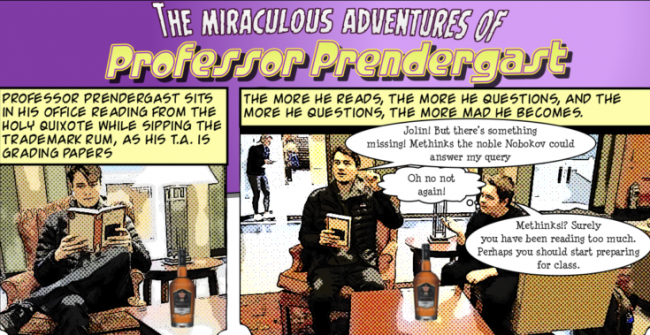
No one was 100 percent ready for the pandemic. Everyone went into this at different levels of preparedness for different aspects of their lives. Professionally, educators are among those who have had to adjust the most. Unless an instructor was already solely teaching online, COVID-19 has required a lot of rethinking, extra work, and in many cases, creativity.
At the University of Rochester, the newness of making classes engaging and accessible for in-person and remote learners has had many faculty members looking to each other for counsel and ideas. Now, they can also look online.
A collaborative project between the River Campus Libraries and the Center for Excellence in Teaching and Learning, the Digital Ideas for Teaching and Learning (DigITaL) project provides a new space for Rochester instructors to contribute and access lesson plans that employ various digital tools. In other words, it’s an open educational resource repository. All the content faculty members find here can be used, modified, or enhanced for use in their classes.
The DigITaL site realizes an effort to promote and foster teaching with technology across Rochester’s campuses that began in 2018 with the award of an Educational IT Innovation Grant. Kim Hoffman, director of Learning Initiatives for the River Campus Libraries, recalls the project finding its direction when she and a colleague attended the annual Center for Integration of Research, Teaching and Learning Research Day.
“Professors were talking about teaching with technology, and they were saying things like, ‘I have a laptop,’” Hoffman says. “And that gave us the thought that we could inspire faculty to learn about other ways of using technology.”
An initial round of soliciting librarians and faculty members from the Arts, Sciences & Engineering schools, Simon Business School, Warner School of Education, and the Writing, Speaking, and Argument Program produced eight case studies. Published studies demonstrate the use of well-known resources like WordPress and perhaps lesser-known tools, such as Omeka, a web-based system for creating digital collections of media and organizing them into exhibits.
Thanks to Ryan Prendergast, associate professor of Spanish, faculty members have an example of how they could use comic strips. Prendergast with Kristen Totleben, a humanities librarian, and Joe Easterly, the digital humanities librarian, authored a case study that shows how they used Comic Life, an application for creating comic-themed media, to create visual literary interpretations of Don Quixote.
“Ryan reached out saying he wanted to try something different to spice-up his class assignments,” Totleben remembers. She, with Easterly and Emily Sherwood, director of the Digital Scholarship Lab worked with Prendergast to understand what he wanted to do and what his students needed to learn. Those conversations resulted in two assignments that asked students to take themes from an episode in the novel and reimagine them in a contemporary context.
Beyond helping the faculty think outside the box, it is currently filling a gap created by COVID-19. Physical distancing guidelines have all but done away with hallway conversations among colleagues. However, even before the pandemic, stop-and-chats didn’t always lead to swapping approaches to teaching.
“What's great about a website like this is it gives people a jumping off point,” Prendergast says. “It pulls up the skeleton of an assignment. Someone can say, ‘I would never use this kind of software,’ or ‘I don’t like this idea, but this has some potential.’ It’s a way of sharing ideas when you aren't seeing a colleague face to face.” ∎
For more information on the DigITaL project, contact Kim Hoffman at khoffman@library.rochester.edu. If you’re interested in contributing take a look at the expectations for publishing. Enjoy reading about the University of Rochester Libraries? Subscribe to Tower Talk.


